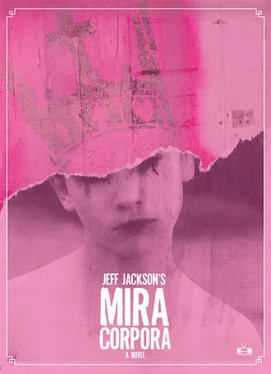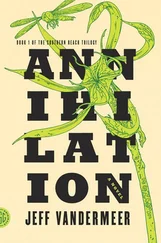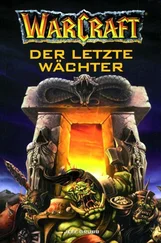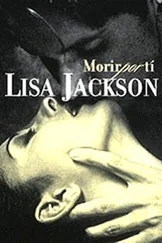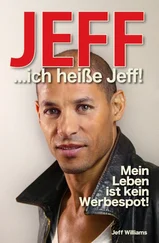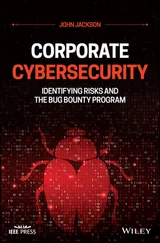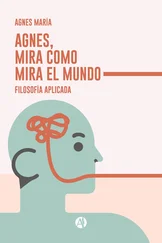Jeff Jackson - Mira Corpora
Здесь есть возможность читать онлайн «Jeff Jackson - Mira Corpora» — ознакомительный отрывок электронной книги совершенно бесплатно, а после прочтения отрывка купить полную версию. В некоторых случаях можно слушать аудио, скачать через торрент в формате fb2 и присутствует краткое содержание. Год выпуска: 2013, ISBN: 2013, Издательство: Two Dollar Radio, Жанр: Современная проза, на английском языке. Описание произведения, (предисловие) а так же отзывы посетителей доступны на портале библиотеки ЛибКат.
- Название:Mira Corpora
- Автор:
- Издательство:Two Dollar Radio
- Жанр:
- Год:2013
- ISBN:9781937512149
- Рейтинг книги:5 / 5. Голосов: 1
-
Избранное:Добавить в избранное
- Отзывы:
-
Ваша оценка:
- 100
- 1
- 2
- 3
- 4
- 5
Mira Corpora: краткое содержание, описание и аннотация
Предлагаем к чтению аннотацию, описание, краткое содержание или предисловие (зависит от того, что написал сам автор книги «Mira Corpora»). Если вы не нашли необходимую информацию о книге — напишите в комментариях, мы постараемся отыскать её.
Mira Corpora — читать онлайн ознакомительный отрывок
Ниже представлен текст книги, разбитый по страницам. Система сохранения места последней прочитанной страницы, позволяет с удобством читать онлайн бесплатно книгу «Mira Corpora», без необходимости каждый раз заново искать на чём Вы остановились. Поставьте закладку, и сможете в любой момент перейти на страницу, на которой закончили чтение.
Интервал:
Закладка:
When I reach the stairwell, the narrow steps sway under my feet, so I shut my eyes and blindly grope my way down toward the street. Behind me, the DJ cues a new song.
It rains constantly the next few days. I stay out of sight while maintaining a stealthy vigil near the abandoned fast food restaurant. It’s hard to understand why Gert-Jan didn’t grab me at the party, but I’m not taking any chances. I camp in the alley across from the service entrance, folding myself into the shadows and huddling among the overflowing trash bags. The restaurant is uncannily quiet. The only evidence of life is a pair of contractors who tape a building permit across the front door.
I’m attuned to the slightest indication of pursuit, but so far there’s no ripple of activity. Gert-Jan is usually more efficient. Behind the bus station, I spot a raft of familiar blue fliers that have been battered by the weather. They’re bleached and near wordless. Lonely black smudges left behind to keep lookout. A teenage girl staples handmade posters about a lost dog over them. Only one flier remains visible on the wall, but I don’t tear it down.
Each day I spend a few hours panhandling for change. I mark up cardboard signs with random chapters and verses from the Bible. John 45:12. Matthew 6:55. Luke 36:3. People assume they reference some profound message of charity, so I do pretty well. I even manage a few extra items with the money. I buy a plastic baby doll for Ruth’s new infant. Plus I pick up a five-inch switchblade for protection.
I’m consolidating my change one afternoon when I spot him. Gert-Jan cuts a decisive path through the waves of weary tourists and commuters. We share a frozen moment of eye contact. Instinctively, I crumple into myself like a hermit crab. My body tenses for the worst, but Gert-Jan brushes past as if I’m another face in the hustling crowd. When he pauses at the corner, I see he has something in his arms. The traffic light changes and he hurries into the grid of the crosswalk. As he strides in front of the idling barricade of taxis, it’s obvious. Gert-Jan is holding a baby. Its tiny bald head pokes from a blue wool blanket. The infant doesn’t look more than a few days old.
For several stunned moments, my body remains paralyzed. Then I find myself bolting across the avenue in pursuit. A sea of undifferentiated figures stretches in front of me, but Gert-Jan and the baby can’t be more than a block ahead. I dodge the horns of oncoming autos and crane my neck for a better view. The crowd briefly thins to reveal a guiding glimpse of Gert-Jan’s crew cut. I bound past concrete planters filled with mums, swerve around trash cans and light poles, push aside businesswomen on their cell phones. Then abruptly I lose sight of them.
They must have entered the bus station. I fight my way through the surging crowds and scurry past the newsstand, the flower cart, the shoe shine attendants. I frantically scan the rows of ticket windows. I haven’t formulated the details of this mission, but it doesn’t matter. Gert-Jan and the infant are nowhere in sight. I scan the dingy atrium once more, then sprint for the escalator. I hurdle the steps three at a time toward the departure gates.
I’m afraid I’ll race into the waiting area only to witness the bus pulling away with Gert-Jan staring out the rear window with an expression of mystery and malevolence. But instead none of the scheduled buses have even arrived. Jaundiced lights buzz overhead. The edges of a color-coded transit map peel off the wall. The few waiting passengers keep to themselves. An elderly man with thick glasses secretively tugs chewed gum from beneath the wooden benches. As I stroll down the passageway, I remove my knife and release the blade.
At the far end of the corridor, Gert-Jan stands cradling the infant. I wipe my palms on my jeans and clench the knife handle tighter. There’s nobody else for fifty yards. Gert-Jan gently rocks the blue blanket and sticks out his tongue at the newborn. He’s so absorbed that he doesn’t register my approach. I move several steps closer, but am halted by soft blissful coos. The baby affectionately dotes on Gert-Jan. A minuscule arm reaches from the swaddling to pat his nose like a comrade. The sight sends a spiraling chill through my entire body. Whatever my plan was, it falls apart right here.
I descend the escalator with heavy steps. I toss the knife into the nearest trash can. Overhead there’s the familiar rumble of a bus entering the station, breaks squealing like a high-pitched siren. I picture Gert-Jan boarding the vehicle with his new pet and surveying the landscape as they’re conveyed beyond the borders of the city. I should be relieved, but instead it feels like I’ve been abandoned.
There’s a bar tucked away in the far corner of the station and I find myself at the furrowed wooden counter. A shot of something sits in front of me. The bartender pays me no mind, mechanically cleaning glasses with a black towel. I see a small arm sticking out of my bag and unpack the doll that I had intended to give Ruth’s baby. Despite its glass eyes and fixed antique expression, it bears an uncanny resemblance to the real infant. The smooth skin has an almost translucent sheen. The crinkled hands extend as if imploring to be held.
I lift the baby by one of its miniscule arms. It detaches with a soft snap that sounds like a sigh. The other limbs come apart just as easily. Several sharp turns are all that’s required to unscrew the head. It’s as if the poor creature was made to be dismembered.
I cradle the torso in my arms. It feels unspeakably vulnerable. I place my lips against the empty space where there used to be a neck. My voice whispers consoling words into that hole. There’s only the faintest echo.
I END
When I reach the end of my history, I stop before etching the final phrase. I switch on the lamp on my desk and focus my eyes on the circle of light. I inhale a series of deep breaths until my pulse thrums in an unwavering rhythm and my hands remain perfectly steady. I’m about to perform a delicate operation.
I take the notebooks I’ve completed and methodically remove the pages. I slide each one beneath the aureole of light. Beginning with the last word I’ve written, I gently massage the letters away using a white eraser. I blow the rubbery residue from the paper and work my way backward, word by word, until I arrive at the beginning.
After the first phrase has been studiously scrubbed from the first page, I take a moment to admire my handiwork. The paper glistens with an otherworldly sheen. The ghostly traces that cling to these pages are my true story. I conclude my tale by inscribing the final line with the now sharpened point of my eraser.
CHAPTER 6 — MY ZERO YEAR
(18 years old)
“The hunting dogs are playing in the courtyard, but the hare will not escape them, no matter how fast it may be flying already through the woods.”
— Franz Kafka
LET’S PRETEND THE LANDSCAPE OUTSIDE THE BUS isn’t familiar. At least for a little while longer. Through the dusky tinted glass, I imagine the scenery is nothing more than a filmstrip of anonymous images. I pay no attention to the unevenly paved turnpike, the flower-choked median, the vista of rolling hills, the rows of religious billboards. The names of the approaching towns are just another collection of signs. I don’t want to know how fast I’m closing in on my final destination.
As the scenery reels past the window, I focus on my reflection floating out over the yellow fields. I feel like a piece of thread being pulled forward by some unseen hand. The other passengers also seem lost in their own private dramas. Murmurs of distracted conversation. Half-remembered jokes and stunted anecdotes. People talking with their hands, carving incomprehensible patterns in the air. My seatmate switches on the radio and the sounds of a call-in show leak from his headphones. The shouted arguments are almost lulling. I lean my head against the windowpane, letting my skull vibrate along the same jittery frequency as the motor.
Читать дальшеИнтервал:
Закладка:
Похожие книги на «Mira Corpora»
Представляем Вашему вниманию похожие книги на «Mira Corpora» списком для выбора. Мы отобрали схожую по названию и смыслу литературу в надежде предоставить читателям больше вариантов отыскать новые, интересные, ещё непрочитанные произведения.
Обсуждение, отзывы о книге «Mira Corpora» и просто собственные мнения читателей. Оставьте ваши комментарии, напишите, что Вы думаете о произведении, его смысле или главных героях. Укажите что конкретно понравилось, а что нет, и почему Вы так считаете.
